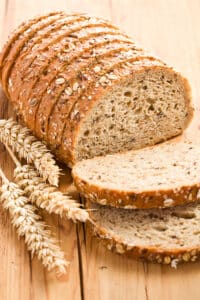
As the years pass, a balanced diet becomes more crucial for general health and well-being. A crucial element that can significantly help seniors is adding whole grains to their regular meals. However, seniors might not know how to add whole grains, let alone what whole grains are best. This is where it pays to have in-home care assistance by their side, helping them understand the numerous nutritional advantages of whole grains and how to ensure they make the most of those advantages.
Understanding Whole Grains’ Nutritious Value
Whole grains are a great source of important nutrients that help with many aspects of senior health.
For instance, dietary fiber, which is abundant in whole grains, is essential for maintaining digestive health. In addition to encouraging regular bowel movements and preventing constipation, fiber may also reduce the risk of diverticulosis.
Whole grains are also an excellent source of Iron, magnesium, and selenium. These nutrients are crucial for the body’s ability to produce energy, support the immune system, and maintain healthy bones. This last one is significant for seniors, as healthy bones help keep them balanced and reduce the risk of falling.
Lignans and phenolic acids, two types of antioxidants found in many whole grains, can reduce the damage that free radicals do to cells. This could help lower the chance of age-related chronic illnesses like heart disease and some types of cancer. For seniors who may be at risk for these things, ensuring they have enough whole grains in their diet is key for in-home care and family caregivers.
The Benefits of Whole Grains
In addition to the value whole grains offer, seniors who consume whole grains can benefit from a number of health advantages, including:
- Heart Health: There is a correlation between whole grains and a lower risk of heart disease. Because of their high fiber content and other heart-healthy nutrients, they can help lower blood pressure, improve blood vessel function, and lower cholesterol.
- Weight Control: The fiber in whole grains helps seniors feel fuller for longer periods of time. With in-home care adding whole grains to their diet, seniors can take steps toward maintaining a healthier weight, which is beneficial for overall health.
- Blood Sugar Control: Whole grains raise blood sugar levels more gradually and steadily than refined grains because they have a lower glycemic index. Seniors with diabetes who are at risk of developing insulin resistance may find this helpful.
- Digestive Health: As mentioned above, whole grains have essential dietary fiber. This helps support digestive health by encouraging regular bowel movements and preserving a healthy gut microbiota.
How Can Seniors Include More Whole Grains in Their Diets?
Some suggestions have already been noted. They, along with the ones below, can go a long way in ensuring seniors take advantage of the benefits whole grains offer. Seniors with in-home care services for meal planning might find adding whole grains easier. Some ideas include the following:
- Whole-grain bread, pasta, rice, and cereals
- Ancient Grains, like barley, farro, bulgur, or quinoa
- Whole grain snacks, like oatmeal cookies, popcorn, or whole-grain crackers
Whole grains might be the answer to increasing seniors’ nutritional intake and promoting better health. They offer a number of health advantages, including better heart health and improved digestion. With in-home care support, seniors can gain an understanding of how whole grains help them and how to incorporate them into their daily lives.
If you or an aging loved one are considering In-Home Care in Hillsborough, CA, please contact the caring staff at Aviva In-Home Care today at (415) 463-1400
Aviva In-Home Care provides exceptional senior home care in the Bay Area, including San Francisco, Burlingame, San Mateo, Hillsborough, Atherton, Menlo Park, Palo Alto, Berkeley, Lafayette, Orinda, and surrounding areas.
- How To Help Your Senior Parent Feel Their Best Every Day - May 14, 2025
- Preventing Falls in the Yard - May 6, 2025
- Reducing the Risk of Sarcopenia (muscle loss) in the Elderly - April 22, 2025



